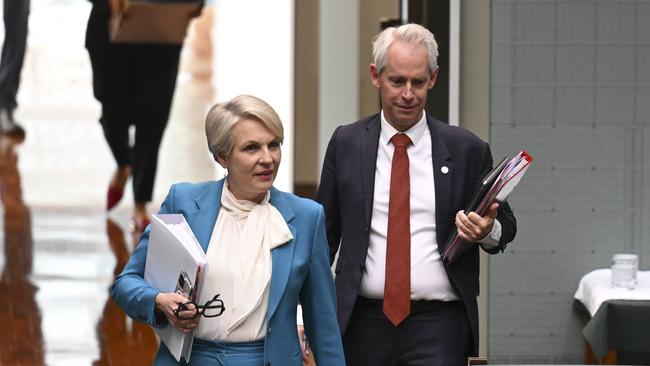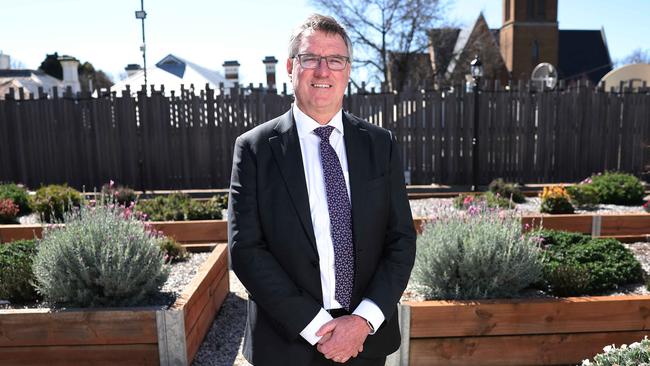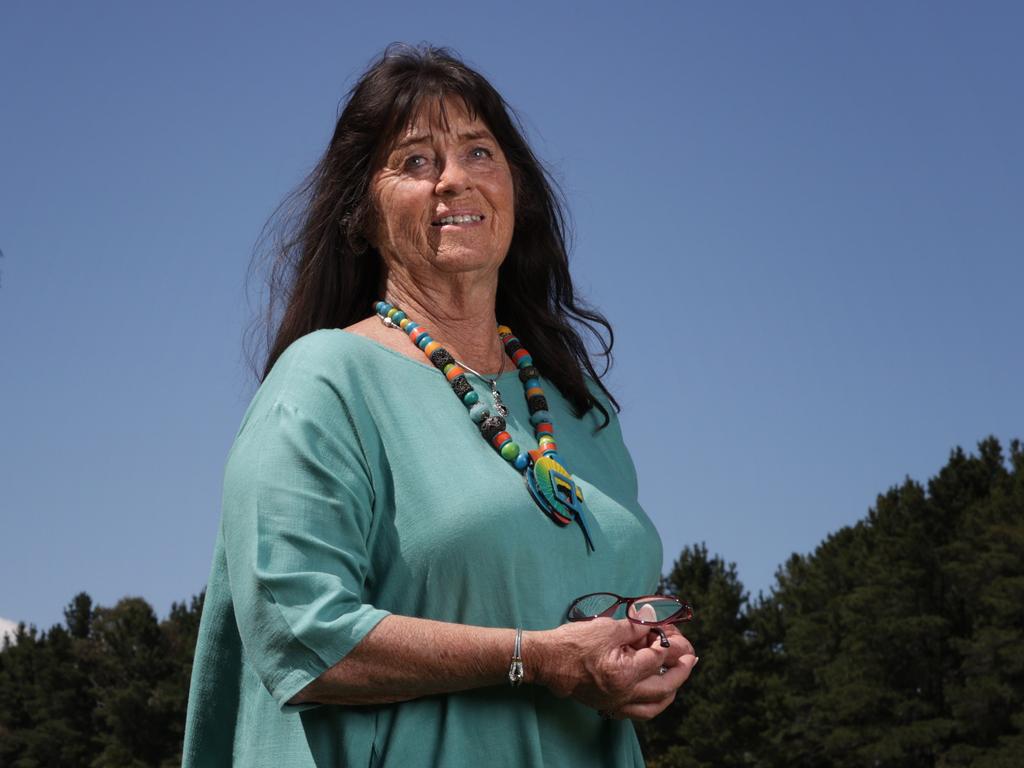Tanya Plibersek’s Blayney mine decision taken to court by Regis
Tanya Plibersek will face judicial scrutiny over her decision to heritage-list part of the Blayney gold mine site, effectively blocking the $1m project.

Mining conglomerate Regis Resources will take Environment Minister Tanya Plibersek to the Federal Court over her decision to heritage-list part of the $1bn Blayney gold mine site on the advice of a rebel Indigenous group.
On Thursday, Regis filed an originating application calling for judicial review of the heritage decision. It seeks to have the decision, which falls under Section 10 of the Aboriginal and Torres Strait Islander Heritage Protection Act, repealed and to have a re-examination of the site taken out of Ms Plibersek’s hands and made the responsibility of a different portfolio. It also seeks legal costs if Ms Plibersek’s decision is found to be legally invalid.
Regis will argue Ms Plibersek failed to listen to the independent assessor hired to investigate the cultural significance of the region when she overruled its findings.
A critical point of evidence in her final reasons for blocking the tailings dam site was the blue-banded bee Dreaming, raised in December 2023 in an oral submission by a member of the Wiradyuri Traditional Owners Central West Aboriginal Corporation.
In Senate estimates on Monday, DCCEEW staff said additional evidence such as the Dreaming was not independently assessed as the original submissions were.
Regis will argue this was an oversight on the part of the department, and additional evidence should have been part of an updated Section 10 report. It also contends Ms Plibersek overlooked the evidence of the Orange Local Aboriginal Land Council, particularly in its rebuttal of WTOCWAC’s testimony.
“The project has been rendered unviable in its current approved form and to advance any realistic and approvable alternative would require further extensive investigations and studies along with new state and federal approvals processes,” a Regis statement reads. “It is estimated this could take between five to 10 years.”

Regis Resources chief executive Jim Beyer said Ms Plibersek’s decision had been “vigorously disputed” since it was handed down in August.
“In the weeks following the minister’s decision, it has become clear that key findings made by the minister regarding Aboriginal cultural heritage are vigorously disputed,” Mr Beyer said.
“We consider that neither the minister nor the department properly listened when Regis informed them of the clear consequences for the project of making such a wide-ranging and indiscriminate declaration.
“As the minister has not agreed to revoke the Section 10 Declaration, we are now seeking judicial review and relief from the decision. Our hope is that the Federal Court will find that the Section 10 Declaration is legally invalid and that an alternative decision maker will properly evaluate the claims before them before making a new decision.”
While WTOCWAC initially sought a heritage listing for the entirety of the Blayney-Kings Plains mine proposal site, Ms Plibersek ultimately opted to block a small portion where the site’s proposed tailings dam would sit on the Belubula river.
While Ms Plibersek has repeatedly said Regis could move its dam site and reapply, Regis has contended since August that this would make the project unviable. In her statement of reasons for the decision, Ms Plibersek conceded her verdict “would make the proposed mine unviable in the state in which it is currently proposed and approved” and would have “time and resources implications” for Regis.
“As legal proceedings have commenced, it would be inappropriate for the Minister to comment,” a spokesman for Ms Plibersek said.
Opposition environment spokesman Jonathon Duniam questioned Ms Plibersek’s reasoning for the decision.
“The Coalition has long been concerned about Tanya Plibersek’s decision-making process in relation to the McPhillamys gold mine,” Senator Duniam said.
“Making a section 10 declaration under the ATSIHP Act to stop a project is rare and should be backed up by bulletproof reasoning,” he said.
“The Coalition’s campaign to uncover the details behind Minister Plibersek’s declaration has left more questions than answers when it comes to the verification of Indigenous cultural heritage Dreaming stories.”
The Blayney decision was Ms Plibersek’s first Section 10 approval since assuming office and comes amid a call for expedited reform of heritage laws. A Federal Court victory for Regis would probably set precedents for the handling of heritage assessment.







To join the conversation, please log in. Don't have an account? Register
Join the conversation, you are commenting as Logout